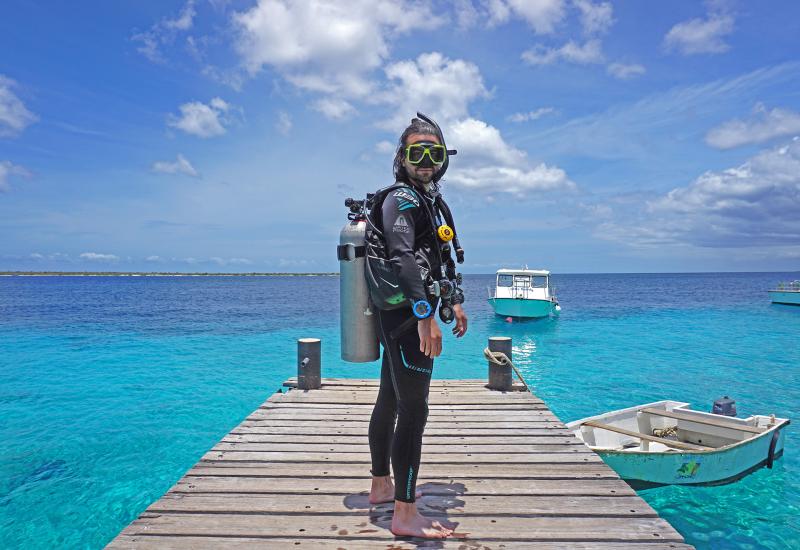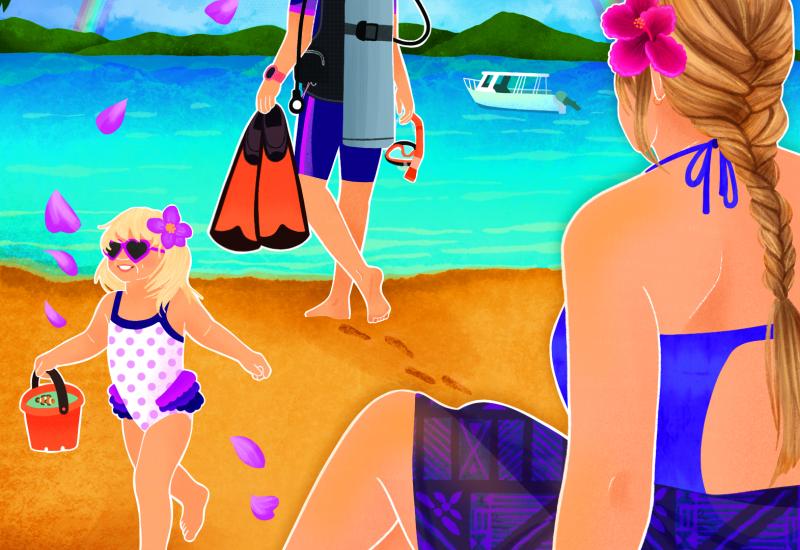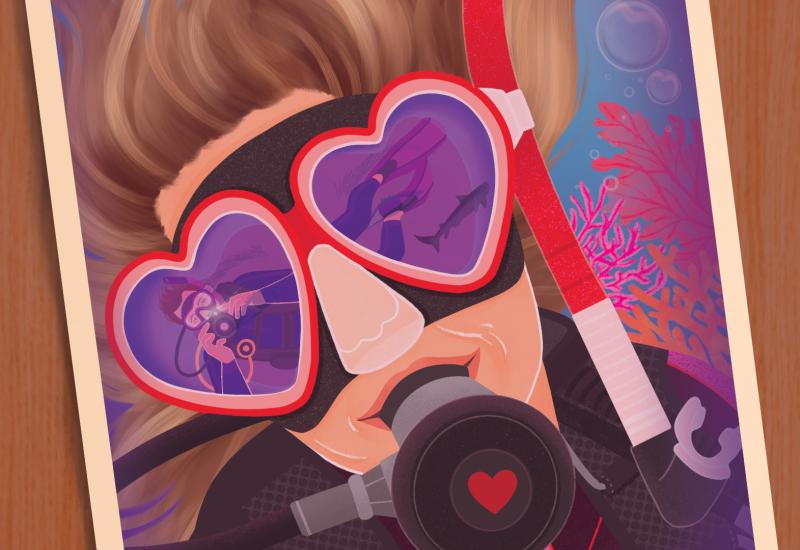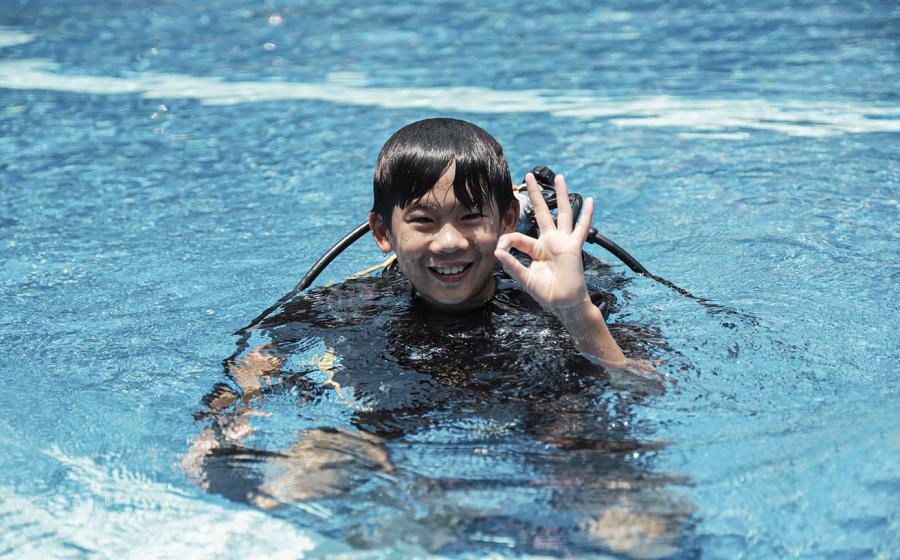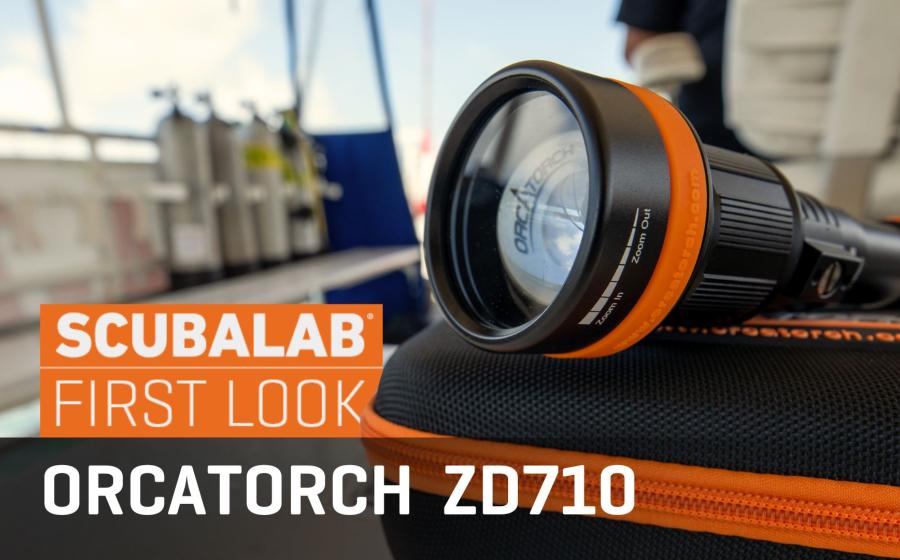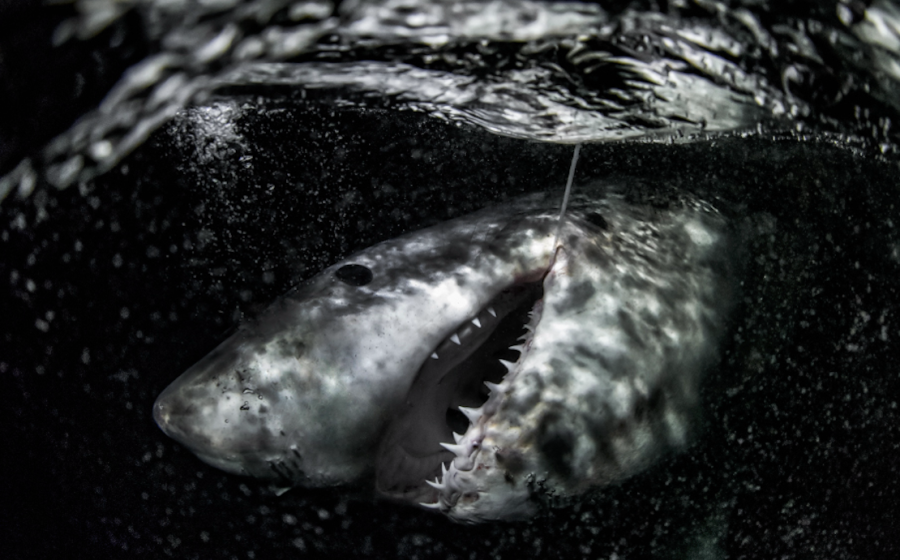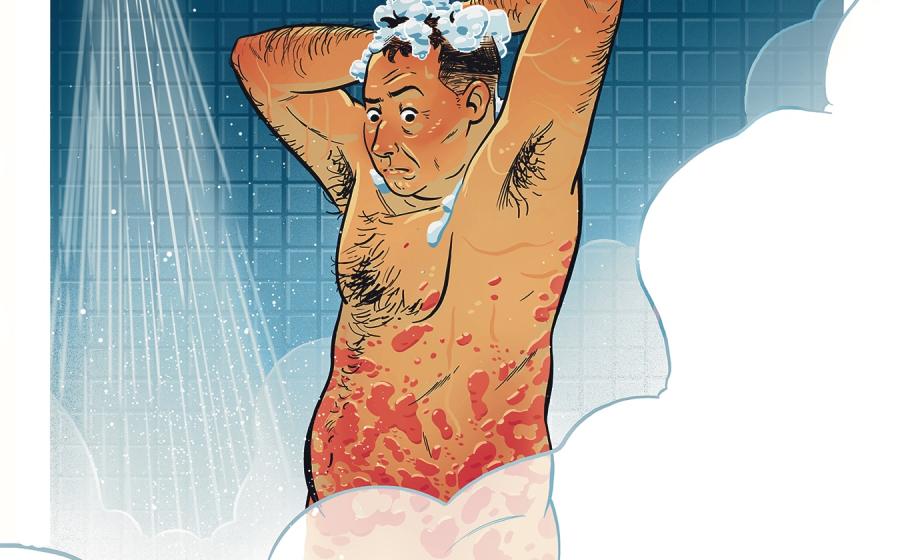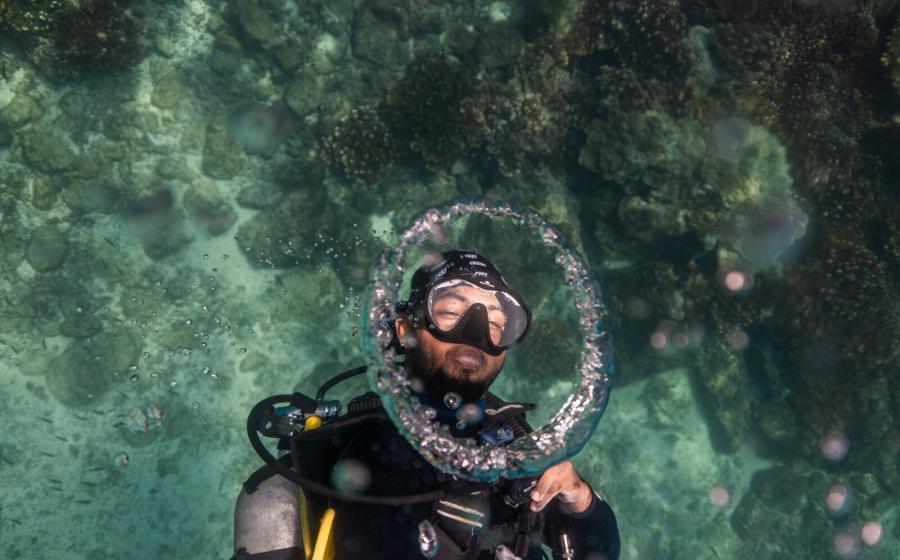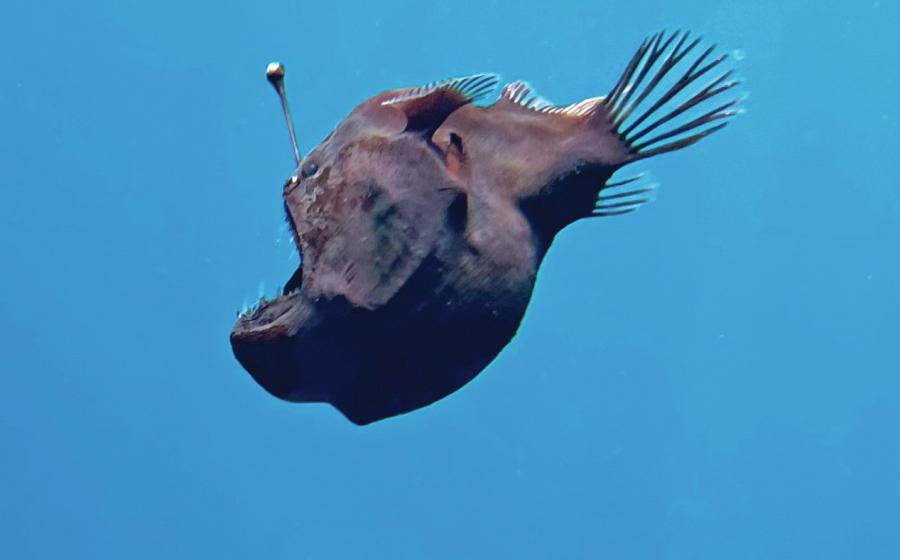The Next Generation of Black Women in Marine Science
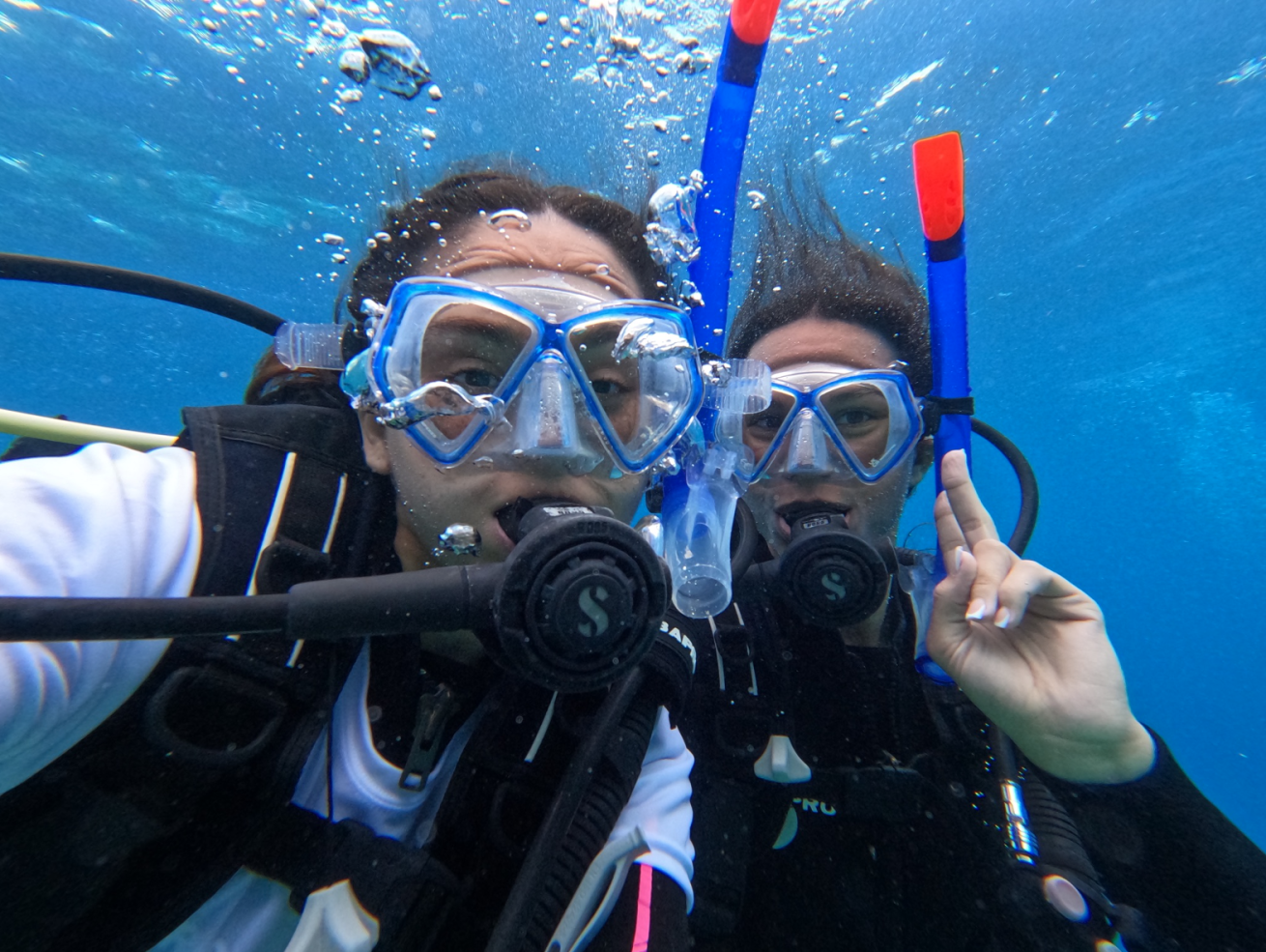
Yaira OrtizYaira and Michelle snap an underwater selfie during Black in Marine Science Immersion Program.
Black women are among the most educated demographic in America, yet they hold fewer than 5 percent of executive positions across all science fields. Despite their academic achievements and persistence, fewer than 1 percent of Black women with doctorates hold managerial roles in ocean sciences.
Black women in marine science carry a dual burden: historical trauma tied the transatlantic slave trade and ongoing sexism and harassment in the workplace. A study by Women in Ocean Science found that 78 percent of women in the field have experienced workplace sexual harassment.
The contributions of Black women’s intersectional perspectives to marine science are invaluable and must not be overlooked. Recognizing and integrating their unique insights into environmental decision-making is essential. Equally critical is the need to create opportunities and safe spaces within the field that protect Black women from discrimination and harassment while fostering equity and inclusion.
During this Black History Month, and the subsequent Women's History Month, there is no better time to honor the intersectional and pivotal role that Black women and women of color play in the field of marine science.
Black in Marine Science (BIMS) and Black Women in Ecology and Evolutionary and Marine Science (BWEEMS) seek to remove barriers that prevent Black Women and women of color from gaining access to the underwater world.
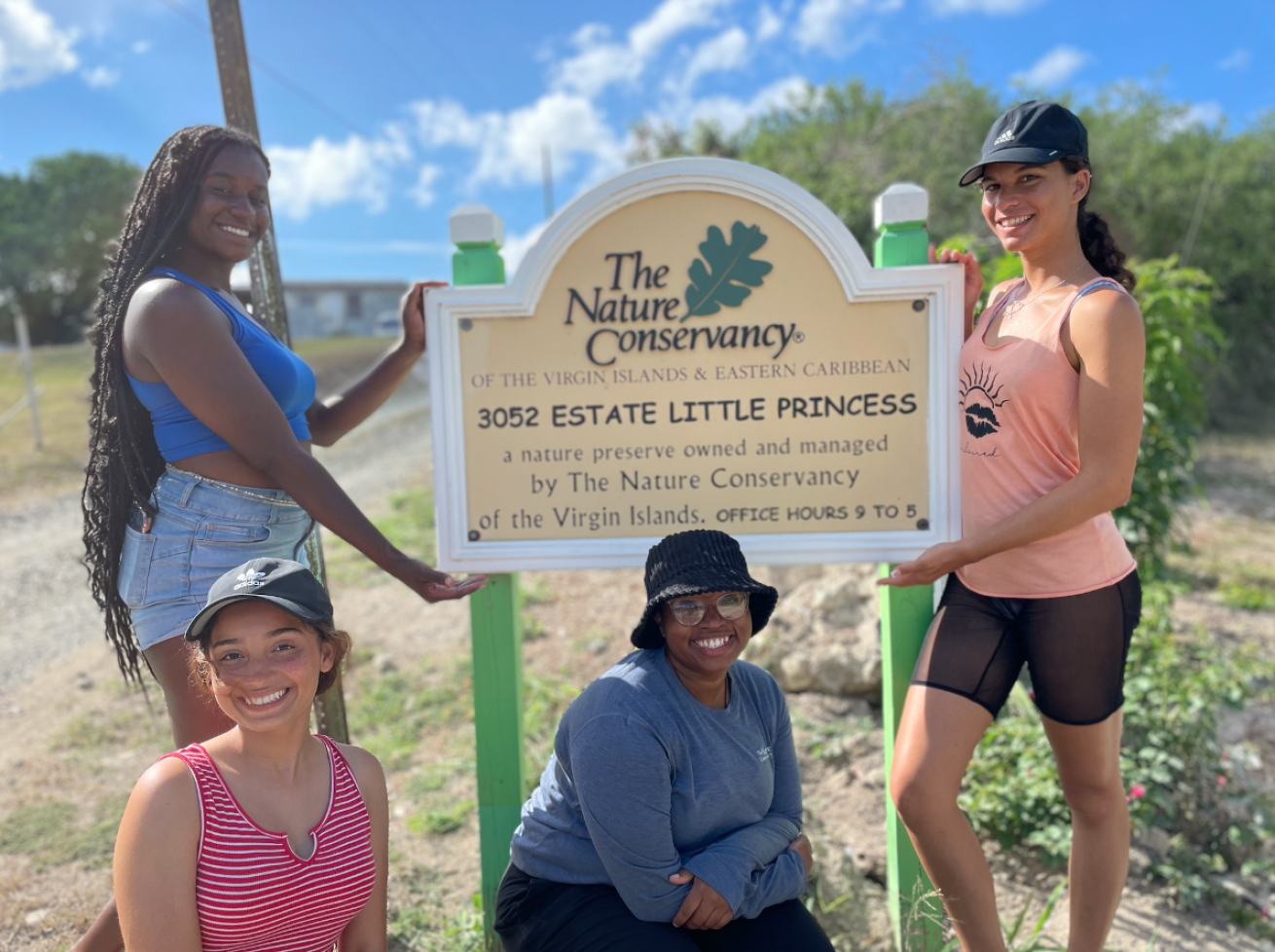
Leslie TownsellFrom left to right shows the students of St.Croix BIP week 2023 (Jasmine Winston, Yaira Ortiz, Andria Miller, and Michelle Laudat.)
Every year since 2021, Black in Marine Science (BIMS) funds students to travel and gain their PADI Open Water or Advanced Open Water scuba diving certifications. The BIMS Immersion Program is a no-cost scuba diving certification program with immersive learning experiences where students can participate in activities like coral restoration, shark tagging and laboratory tours. To date, BIMS has successfully certified 33 Black, Indigenous, People of Color (BIPOC).
In 2023, BIMS partnered with The Nature Conservancy to host four students in St. Croix for a week of scuba diving, coral restoration and cultural experiences. The participants ranged from undergraduates to graduate students.
Despite each student’s unique connection to the ocean, earning a scuba certification gave them a new perspective, the skills to embrace challenges, and the opportunity to dive anywhere in the world.
Meet the Trailblazers
Yaira
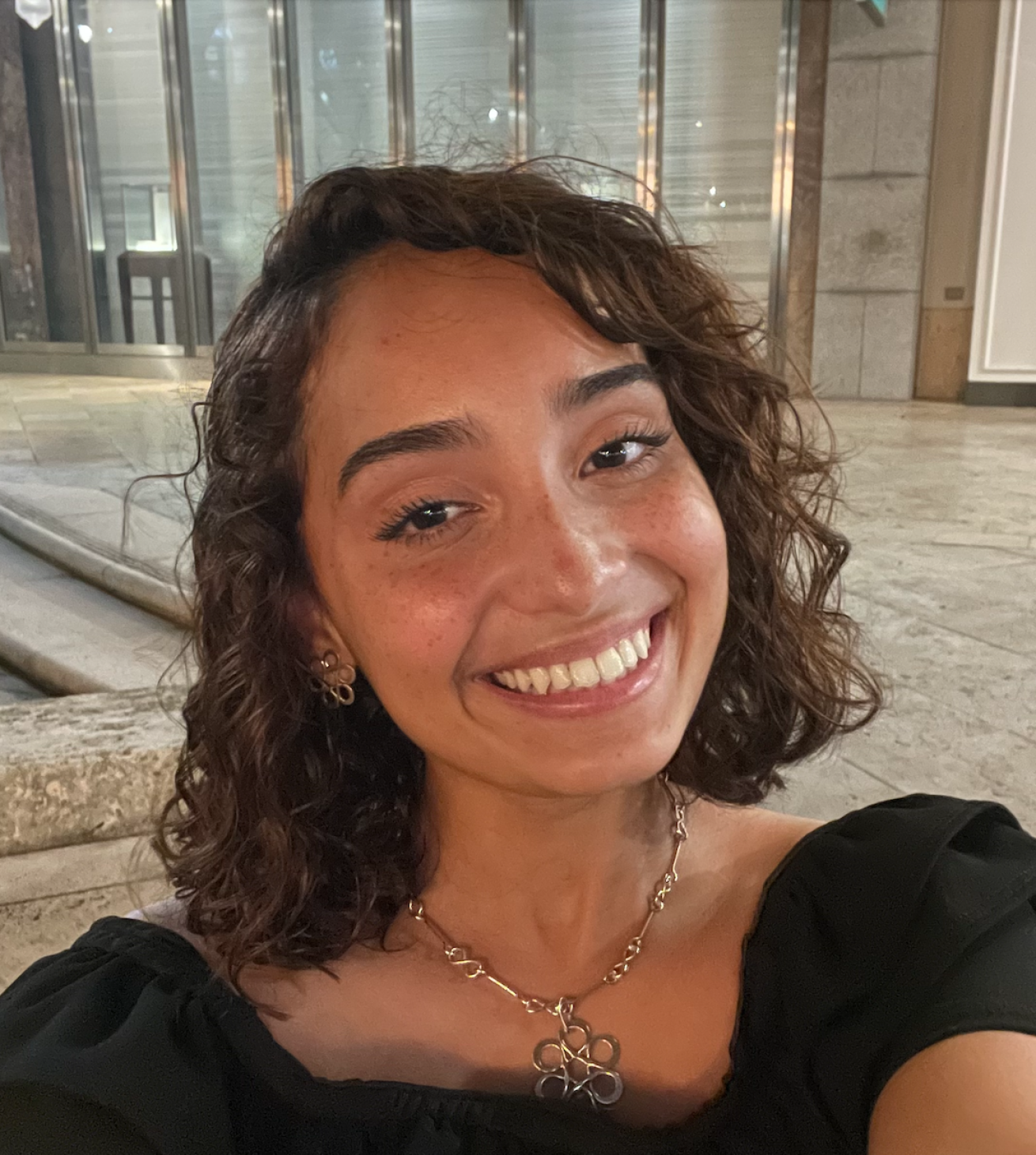
Education: Marine biology and ecology with a minor in education, University of Miami, expected graduation 2026.
She was proudly born and raised in St. Croix.
“It was liberating taking my first breaths underwater. I was ecstatic because this is something I wanted to do for a long time but never got the chance to”
“The certification process took a lot of trust and self-confidence that I had no idea I had within me. It really made me feel like I could do anything afterwards.”
Jasmine
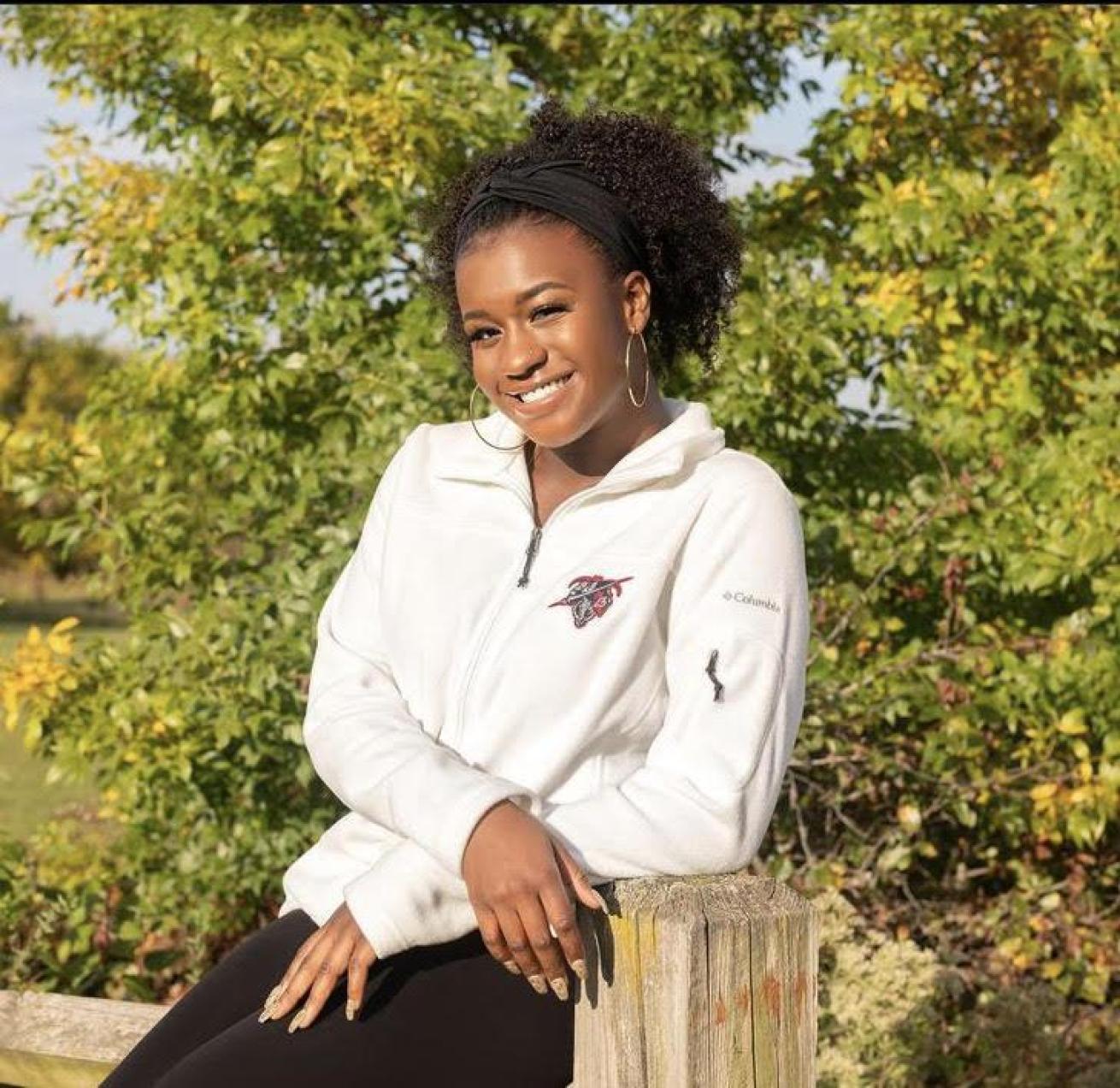
Education: Environmental Science, Florida A&M University, expected graduation 2026.
“I enjoyed BIP week so much! I was able to be surrounded by divers who looked like me.”
“I was able to reconnect with the natural environment and remember why I became interested in environmental science in the first place”
Michelle
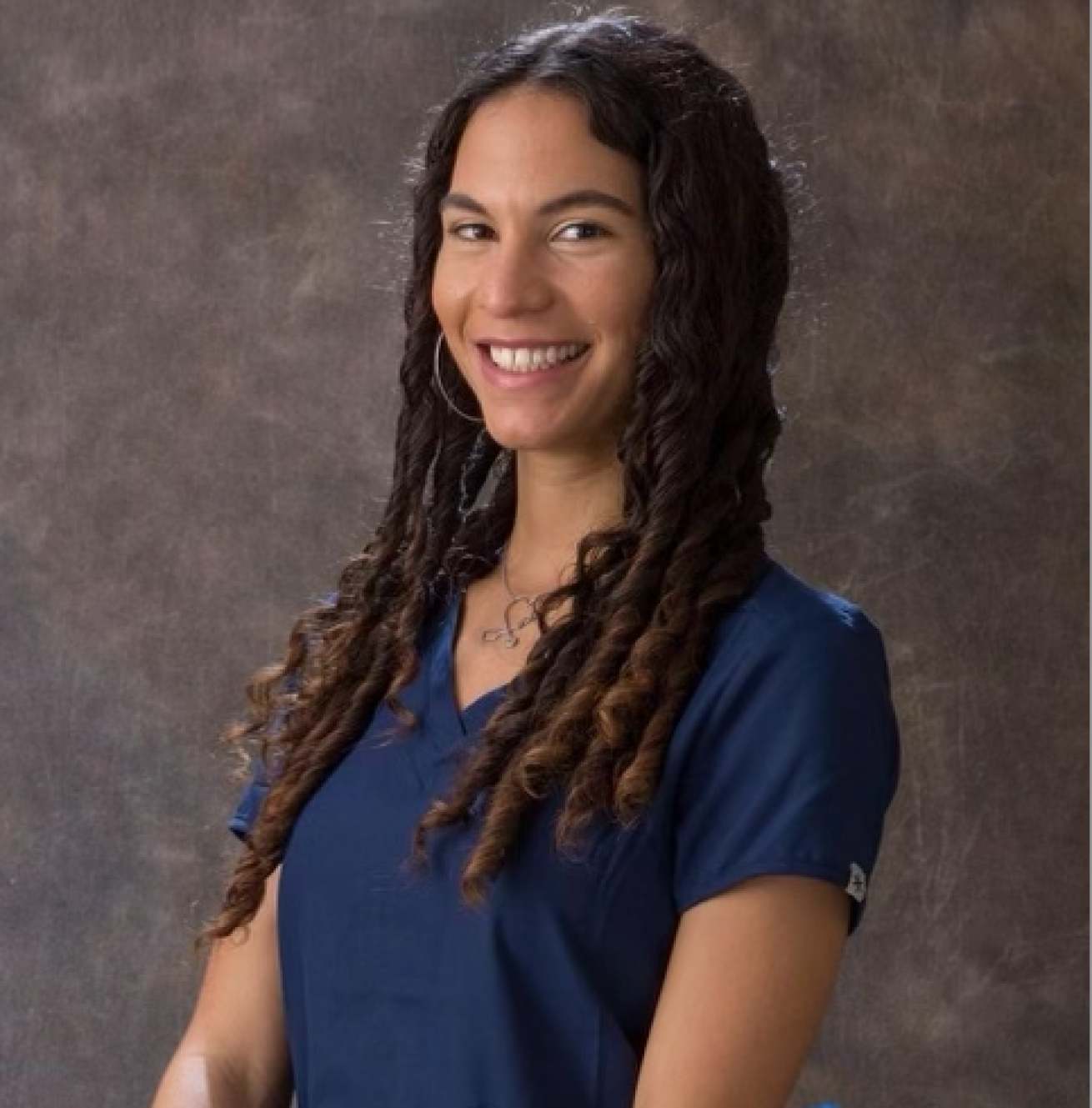
Education, Nursing and minor in psychology, University of the Virgin Islands, awarded bachelor of science in 2023.
“During my childhood, my father and I would go to the beach to swim and snorkel. We would search for sea cucumbers, sea urchins, and many other interesting creatures. I am certain that diving would allow me to reach new depths and discover new areas.”
“The BIP week was an awesome experience! I really did enjoy the program.”
Andria

Education: Oceanography, University of Rhode Island, Masters Student.
“I don’t even know the words to describe how working with other black marine scientists means to me. It’s empowering, I’ve always felt this uncertainty, who is in the water or in this field. It just reminded that I’m capable.”
“I felt called to bring other people to have a similar relationship. It’s protecting me and giving me what I need.”
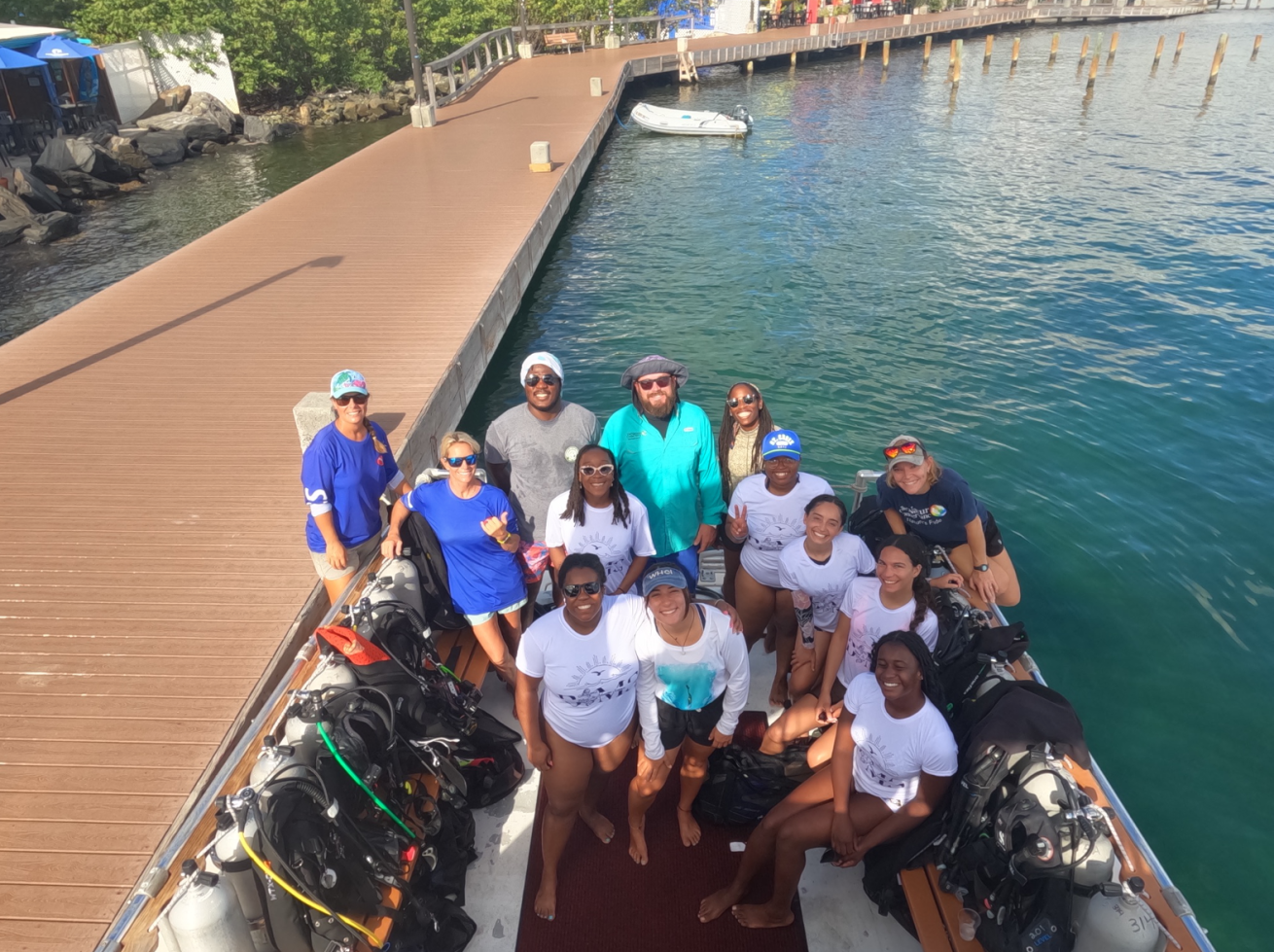
Courtesy The Nature ConservancyThe students and Staff of St.Croix BIP week 2023 (left to right: Liz Czok , Jo Barendse (TNC), Hillard Hicks (DPNR), Scott Marusa (TNC), Kelcie Troutman, Camille Gaynus, Andria Miller, Yaira Ortiz, Lisa Terry, Leslie Townsell, Delsa Gonzalez (TNC), Michelle Laudat, Jasmine Winston
Related Reading: Orgcas: The Women Uniting to Save Sharks
Diversifying STEM requires community engagement and purposeful inclusion of minorities through programs like Black In Marine Science Immersion Program, and other nonprofits such a Black Women in Ecology Evolutionary Biology and Marine Science (BWEEMS) who seek to decolonize and increase diverse participation in these fields.
Removing financial barriers for minorities through programs like BIMS is the first step to increasing diversity as well as creating safe spaces for Black women and women of color to experience underwater exploration and marine science.
To learn more and learn how you can support visit www.blackinmarinescience.org.


